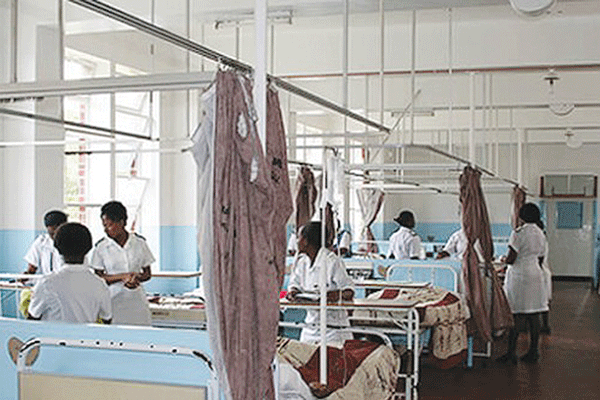
While other nations celebrate milestones in mitigating the impact of mental diseases, Zimbabwe is still grappling to address serious health gaps in the country’s psychiatric care system, especially at community level.
by staff reporter
This is despite the fact that statistics have indicated that a larger percentage of the population in the country suffer from a mental condition.
“We conducted a nationwide rapid assessment and noted that there were serious health gaps in the country’s psychiatric care system, including shortage of psychotropic drugs, human resources (specialists) and physical facilities, particularly at primary health care/community level,” Medecins Sans Frontieres/Doctors Without Borders (MSF) head of mission for Zimbabwe, Abi Kebra Belaye, said.
The international medical humanitarian organisation, in a bid to enhance the provision of mental health care in the community, has established an effective community mental health model of care in 12 polyclinics and one satellite clinic in Harare.
MSF piloted the community model after conducting research that revealed lack of mental health care at the community level, which had led to repeated hospitalisation and imprisonment of patients with mental illness.
“We noted that patients who were being discharged from the psychiatric institutions were relapsing when they went back into the community, due to lack of adequate treatment, care and support, and were being re-admitted into psychiatric institutions,” Belaye said.
As Zimbabwe today joins the rest of the world to commemorate World Mental Health Day, MSF yesterday handed over its community mental health project activities to the University of Zimbabwe’s Department of Psychiatry.
- Chamisa under fire over US$120K donation
- Mavhunga puts DeMbare into Chibuku quarterfinals
- Pension funds bet on Cabora Bassa oilfields
- Councils defy govt fire tender directive
Keep Reading
In addition, MSF also donated a Toyota Landcruiser, medicines, office space, furniture, stationery, a computer and a printer. When a programme has been supported through the growth and development phase, MSF hands over project activities so that patients continue to receive uninterrupted treatment.
The implementation of the pilot project in April last year was done in collaboration with the Health ministry, City of Harare health department and the University of Zimbabwe College of Health Sciences in the Department of Psychiatry.
The initiative involves moving treatment, care and support for patients with mental illness from the hospital to community-based polyclinics
Preliminary results have shown a significant reduction in the number of people relapsing and having to be readmitted to hospital, from 38% before the community intervention down to 4% afterwards.
MSF is confident that the existing staff in the polyclinics will be able to provide good quality care despite continuing challenges.
“We call upon the Health ministry, donors and other organisations to cascade the community model across the country so that people with mental illness benefit from services,” Belaye said.











